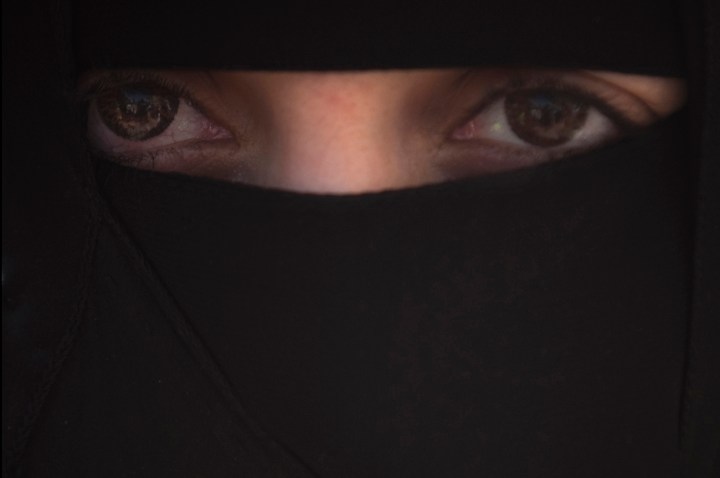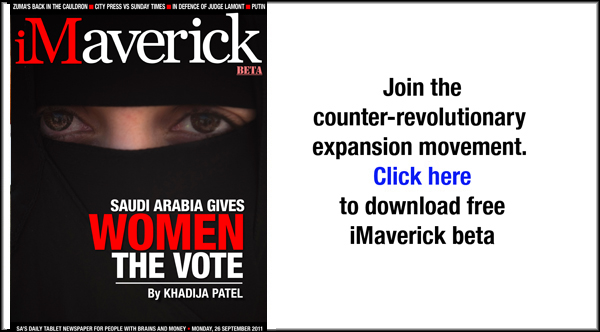Politics
Saudi Arabia gives women the vote

In his annual address to the Shura Council, the Saudi equivalent of a parliament, King Abdullah bin Abdul Aziz of Saudi Arabia announced that women would be allowed to join the council. In itself, the admission of women onto the Shura is a momentous decision, but the King was not done there. He also announced that women would now be able to participate in future municipal elections – not only will they be afforded the right to vote, they are also entitled to stand for election. KHADIJA PATEL explains why this King’s speech is a huge step forward for Saudi Arabia.
Relegated to the sidelines, mere spectators of the tumult of revolution sweeping across North Africa and the Arabian Peninsula, Saudis have had little to cheer about in the feted Arab Spring. The earliest intimation of revolt in Saudi Arabia was met with a characteristically Saudi response, a promise of more handouts. In a country suffering from crippling levels of youth unemployment, the Saudi King snuffed out the nascent threat of revolt by throwing money at his problems. Just days after former Egyptian President Hosni Mubarak stepped down in February, Abdullah announced a social welfare package worth $10.7 billion. This package featured pay raises for government employees, a promise of the creation of new jobs and loan forgiveness schemes. By the end of February, Abdullah’s handouts totalled a substantial $37 billion. His largesse however proved yet greater. In March, he announced a further $93 billion in social spending.
Within two months of the King’s announcements, 3.5 million Saudis had applied for unemployment benefits, emphatically disproving official unemployment statistics that claim a mere 448,000 Saudis are out of jobs. In the short term, Abdullah’s ploy of throwing cash at his problems appears to have worked. The threat of a mass uprising against the royal family appears to have been quashed. The King has proved himself to be alive to the problem of unemployment but he has been far slower to react to demands for reform to Saudi Arabia’s draconian policies on women.
Saudi women have been at the centre of protests and defiance campaigns in the country this year. Women have staged sit-in protests outside local government offices, calling for the release of their relatives held in prison for years without any charge. In turn, Saudi officials contend that they have no political prisoners in custody. Saudi women continued protesting anyway, gradually chipping away at the detachment of Saudi officials to their demands. In July, Amnesty International announced that two women were detained after being arrested in Riyadh during a protest that demanded fair trials for their male relatives. It is indeed a peculiar situation; Saudi women, themselves severely inhibited by Saudi laws, fighting for the rights of their men.
Emboldened by the success of demonstrations against governments elsewhere in the Arab world Saudi women, for the first time since 1990, also challenged the ban against female drivers in the country. In a campaign named “Women2Drive”, women demanded the right to drive and travel freely in Saudi Arabia. Meeting little resistance from officials, women laid their claim to the preserve of men that is Saudi Arabia’s roads. Afterwards, when a group of women across Saudi Arabia proved their driving prowess, the message from authorities deterred the continuation of the campaign. “We indulged your whims this one time, don’t try it again,” it was implied.
The campaign to afford Saudi women their right to drive themselves to their own destinies, or indeed, a tryst at the shopping mall, has been roused by the plight one Saudi woman. Manal al Sharif, a 32-year-old single mother was arrested for driving on 21 May and then detained the next day. She spent a week in jail and upon her release said she was forced to sign a form promising not to drive again. Al Sharif has not been charged, but her case remains open. Her plight has become the rallying point for Saudi women demanding that the law make space for the roles Saudi women play in the society.
After King Abdullah’s announcement on Sunday evening, Al Sharif, like other Saudi women this writer contacted to offer congratulations, was thrilled. Al Sharif was particularly vocal in her praise of the Saudi monarch, “King Abdullah has a vision: for a woman to take her rights, she needs to be part of the decision making bodies! all shall follow,” she tweeted. Her joy was shared by Lamia Bajrai, a Saudi medical student in Dubai who was at first incredulous of the news. Once she was reassured that the news was authentic, she was ecstatic. “I am really happy that we are changing,” she said. “It should have happened long ago but because of the Arab uprising, I think King Abdullah is going to make big reforms,” she predicted happily.
In March this year, Saudi authorities announced that half the seats in the municipal council would be elected, rather than selected by the monarch himself as usual. Those elections take place later this week, but women were of course excluded. The kingdom’s electoral commission blamed the exclusion of women on logistical challenges, claiming that there simply was not enough time or space to accommodate women in sex-segregated election centres. The King’s announcement that women will be allowed to participate in future elections comes then on the eve of this year’s election. Women, according to the King’s edict, will not be allowed to participate in this particular election but will be able to run for office and vote in future polls. The announcement does not portend immediate change for Saudi women. In his speech, the 87-year-old Abdullah said, “Because we refuse to marginalise women in society in all roles that comply with sharia [Principles of Islamic law], we have decided, after deliberation with our senior ulama [clerics] and others … to involve women in the Shura council as members, starting from the next term”.
It would indeed have been far more welcome for Abdullah to announce instead that women would be allowed to drive – such an announcement would certainly have more tangible effects on Saudi life, but this announcement signals from Abdullah a decision to allow women to contribute to making such a decision.
Essentially the Shura council, which women will now be allowed to sit on, is not a democratically elected council. This is a council of advisors, or as their detractors describe them, a ragtag band of snivelling sycophants who are appointed by the King. Whichever women do eventually make it to the Shura will have to be towing the royal line, thus proving that though this announcement is a momentous step for Saudi Arabia, it reveals as well how much still needs to be done to achieve tangible change in the Kingdom. Importantly, with this decision, Abdullah is living up to his reputation as a reformer. Saudis know that Abdullah does indeed want to implement reforms, and this announcement reveals that he does indeed seek change, both social and political. But ultimately, he is impeded by the rigidities of Saudi society itself. It remains then for Saudi Arabia to confront its own schizophrenia. DM
Read more:
- Saudi Arabia gives women right to vote in The Guardian (UK);
- Saudi Arabia: Women Allowed to Join Shura Council in Global Voices;
- Women in Saudi Arabia to vote and run in elections in BBC News.
Photo: REUTERS






 Become an Insider
Become an Insider